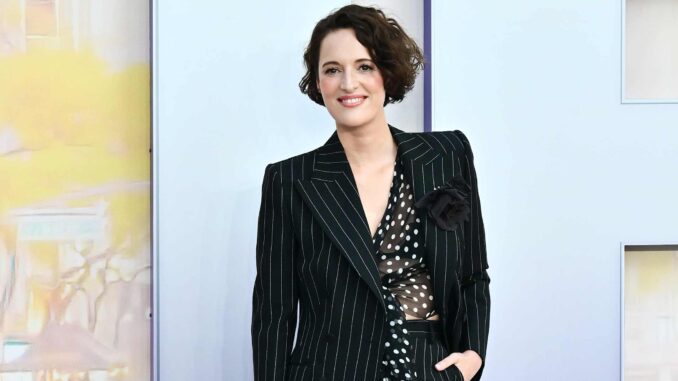
A Galaxy Far, Far Away and a Chicago Crime Scene: Elsbeth's Hopeful Hail Mary
The stale air of the CBS casting office hung heavy, thick with desperation and the scent of lukewarm coffee. Across the mahogany desk, Gloria, a woman who'd launched more television careers than she’d had hot dinners, was slowly deflating. Her legendary energy, usually a buzzing hum that crackled through the room, was a flickering bulb, threatening to extinguish completely.
"Another no," she sighed, pushing the phone away like a contaminated biohazard. "They love the script, they adore the character, but they just… aren't available. Shooting schedule conflicts, personal commitments, yoga retreats with endangered snow leopards – you name it, I've heard it."
Gloria was hunting a unicorn. Or rather, a star of significant wattage to inject a shot of pure, unadulterated electricity into "Elsbeth," the quirky, observant lawyer who'd captivated audiences with her uncanny ability to crack cases overlooked by even the most seasoned detectives. The show was doing well, critically acclaimed, but lacked that extra something, that name that would propel it into the stratosphere of primetime dominance.
And she had her eye on one man: Harrison Ford.
Yes, that Harrison Ford. The man who defined rugged heroism for a generation. The actor who’d piloted the Millennium Falcon, dodged poisoned darts in jungles, and chased down replicants in futuristic Los Angeles. Bringing him to the cozy, albeit eccentric, world of "Elsbeth" felt like trying to fit a supernova into a teacup.
But Gloria was dying, literally. A persistent cough rattled in her chest, a constant reminder of the illness that was slowly claiming her. This was more than just securing a great guest star; this was a final, audacious act of defiance against the inevitable. This was her last chance to orchestrate a casting coup so legendary it would be whispered about in Hollywood for decades to come.
She envisioned it: Ford, playing a reclusive architect with a hidden past, a man shrouded in mystery and suspicion. Elsbeth, with her disarming charm and laser-sharp intuition, would be the only one who could see through his carefully constructed facade. The dynamic would be explosive, a masterclass in nuanced acting, a symphony of subtle glances and unspoken truths.
The problem, of course, was convincing him. He was notoriously selective, known for his discerning taste and his aversion to anything that reeked of network television. Gloria knew she had to approach this with the finesse of a Jedi Master using the Force.
She started by researching everything. Every interview, every charity event, every article written about him. She learned he was a passionate environmentalist, a skilled pilot, and a man who valued authenticity above all else. She discovered he had a soft spot for quirky, independent films.
Her plan began to take shape. It wasn't about the money, or the fame, or the ego-stroking. It was about the art. She had to convince him that "Elsbeth" was more than just another procedural; it was a unique exploration of human nature, a tapestry woven with humor, intelligence, and a genuine desire to understand the complexities of the human spirit.
Gloria crafted a letter, not a form letter sent by a publicist, but a heartfelt, handwritten note on personalized stationery. She didn’t mention Star Wars or Indiana Jones. She spoke about the character, the story, the unique opportunity to play against type, to delve into the shadows of a man wrestling with his conscience. She spoke about Elsbeth, a character whose unwavering optimism could disarm even the most hardened cynic.
She ended the letter with a simple, honest plea: "Mr. Ford, I am running out of time. This role, this story, it means more to me than I can possibly express. I believe you are the only actor who can bring this character to life. Please, consider it."
The weeks that followed were an agonizing blur. The cough worsened, the energy dwindled, but the hope flickered on, fueled by a stubborn refusal to give up. Gloria checked her voicemail incessantly, jumped at every ring of the phone. She even resorted to consulting a psychic, who told her she was “on the cusp of something extraordinary.”
Then, one crisp autumn morning, the phone rang. It wasn’t his agent. It was him.
He had read the letter. He had read the script. He was intrigued. He was impressed.
"Gloria," his voice, that iconic rumble, filled the room. "The character… I like him. He's got layers. And that Elsbeth… she's something else."
Gloria’s heart soared. The pain, the fatigue, the fear – they all receded, replaced by a surge of pure, unadulterated joy. She had done it. She had pulled off the impossible.
The details were ironed out, the schedules aligned. Harrison Ford was coming to "Elsbeth."
Gloria never saw the episode air. But she knew. She knew she had left her mark, not just on the show, but on the very fabric of Hollywood history. She had chased a star, caught a legend, and, in the process, reminded everyone that even in the face of death, hope, like the Force, can be a powerful ally. And sometimes, all it takes is a handwritten letter and a little bit of galactic magic to bring a galaxy far, far away to a Chicago crime scene.
